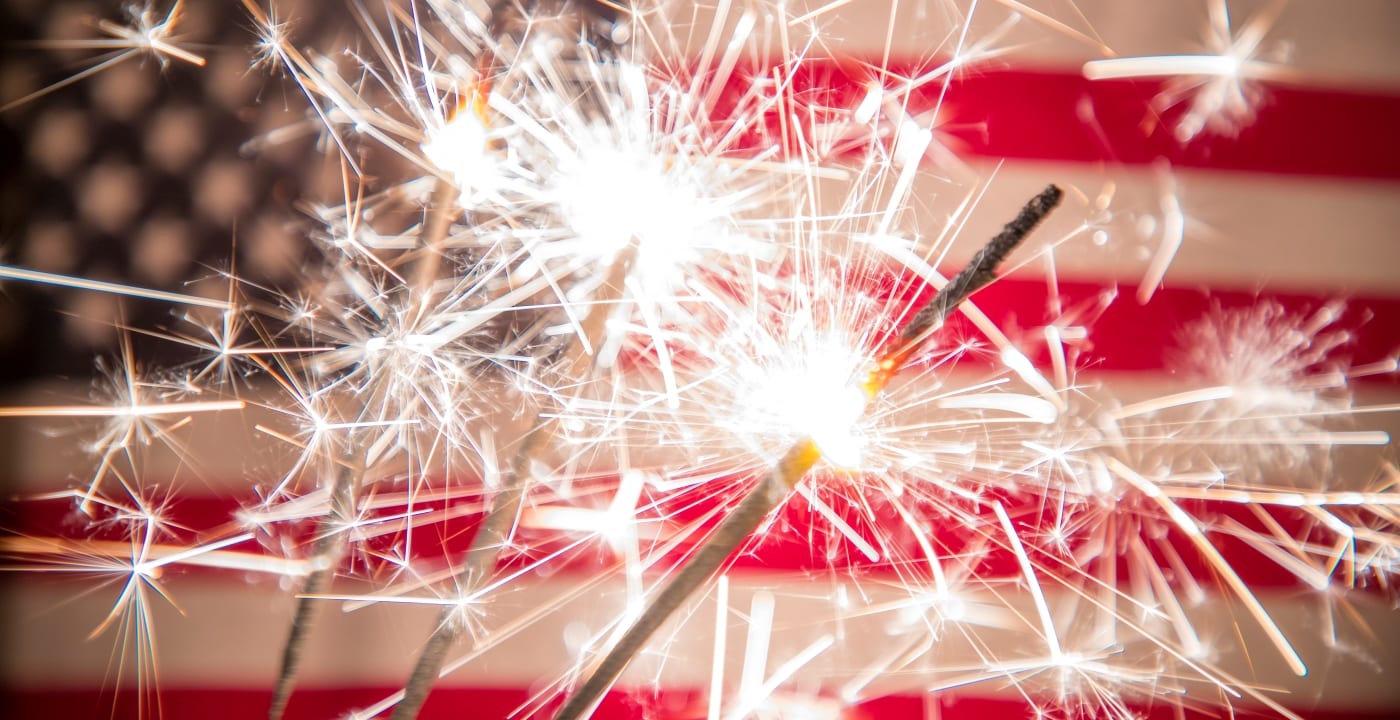How to use fireworks safely — and avoid a trip to the hospital

At a glance
- Accidents and injuries from the Fourth of July range from minor burns to amputations
- Causes include standing too close and holding fireworks in your hand while igniting them
- Multi-aerials, sparklers, and illegal fireworks such as M-80s and cherry bombs cause the most injuries
The Fourth of July can be a fun and meaningful celebration of freedom and independence — but taking too many liberties with fireworks can be risky.
Accidents involving fireworks happen most often on the Fourth of July, as well as during the weeks before and after the holiday. Injuries can range from minor burns to permanent scarring, blindness and amputation.
That’s why emergency rooms across the state urge caution and awareness as we approach the Fourth of July weekend.
Common fireworks-related injuries
Common injury types are burns and trauma-related injuries from being struck by or holding a firework.
Firework injuries in children can also occur in areas that are not as obvious, such as the chest and abdomen, says Mauricio “Tony” Escobar, MD, pediatric surgeon at MultiCare’s Mary Bridge Children’s Hospital.
“Fireworks may get trapped in clothes, causing initially unrecognized burns and blunt trauma to organs,” he says.
What causes fireworks-related injuries?
Standing too close and holding fireworks in the hand while igniting them are leading causes of fireworks-related injuries.
Use a long smoldering stick to light a firecracker rather than holding it, and get away from it quickly.
Alcohol is a primary factor in many fireworks injuries, especially the more serious ones.
Most dangerous types of fireworks
The types of fireworks that typically cause the most injuries include:
- Legal fireworks: Multi-aerials, sparklers and Roman candles
- Illegal fireworks: Homemade devices (including sparkler bombs); M-80s, M-100s and cherry bombs; and firecrackers and chasers
Although sparklers aren’t typically considered dangerous, they can reach temperatures as high as 2,000 degrees, according to the U.S. Consumer Product Safety Commission.
Sparkler bombs — high-powered, illegal and homemade — are the most dangerous fireworks.
It’s a good idea to identify and steer clear of sparkler bombs, which can be as powerful as a stick of dynamite. They often ignite accidentally or prematurely by exposure to heat or friction.
In addition to the loud discharge, sparkler bombs produce shrapnel from sparklers (metal wire), materials used to make the bomb and anything the device destroys by projecting debris. This shrapnel can cause life-altering injuries such as amputations and severe eye injuries.
Do’s and don’ts of fireworks safety
Do’s:
- Designate an adult to light fireworks
- Minimize alcohol and drugs around fireworks
- Supervise children around fireworks
- Light one firework at a time and keep at a safe distance
- If a device doesn’t light, wait five minutes before approaching, then carefully place in bucket of water (do not re-light)
- Keep a connected hose or fire extinguisher nearby when lighting fireworks
- Soak all used fireworks in water before disposing
- Keep pets indoors with doors and windows closed; make sure they have ID tags in case they become frightened and run away
Don’ts:
- Try to make your own fireworks
- Attempt to re-light a firework
- Hold a lit firework in your hand, or light a firework while holding it
- Place any body part directly over a fireworks device
- Point fireworks at houses, people, pets or anything else that can burn
If you or someone you know is injured by fireworks, it’s a good idea to seek care sooner rather than later.
Minor burns on children can be treated at the Mary Bridge Children’s Wound & Ostomy Clinic, staffed by wound-certified ARNPs.
Adults with minor burns can be treated at an urgent care clinic.
For more severe burns and other life-threatening injuries, find your nearest emergency room.
Are fireworks legal in my city?
Check your city or county website for fireworks regulations and safety. Here are some helpful websites:
- King County fireworks regulations
- Kootenai County fireworks regulations
- Olympia fireworks regulations
- Pierce County fireworks regulations
- Spokane fireworks regulations
- Yakima fireworks safety
Editor’s note: This article was originally published in June 2016 and updated in June 2023.



